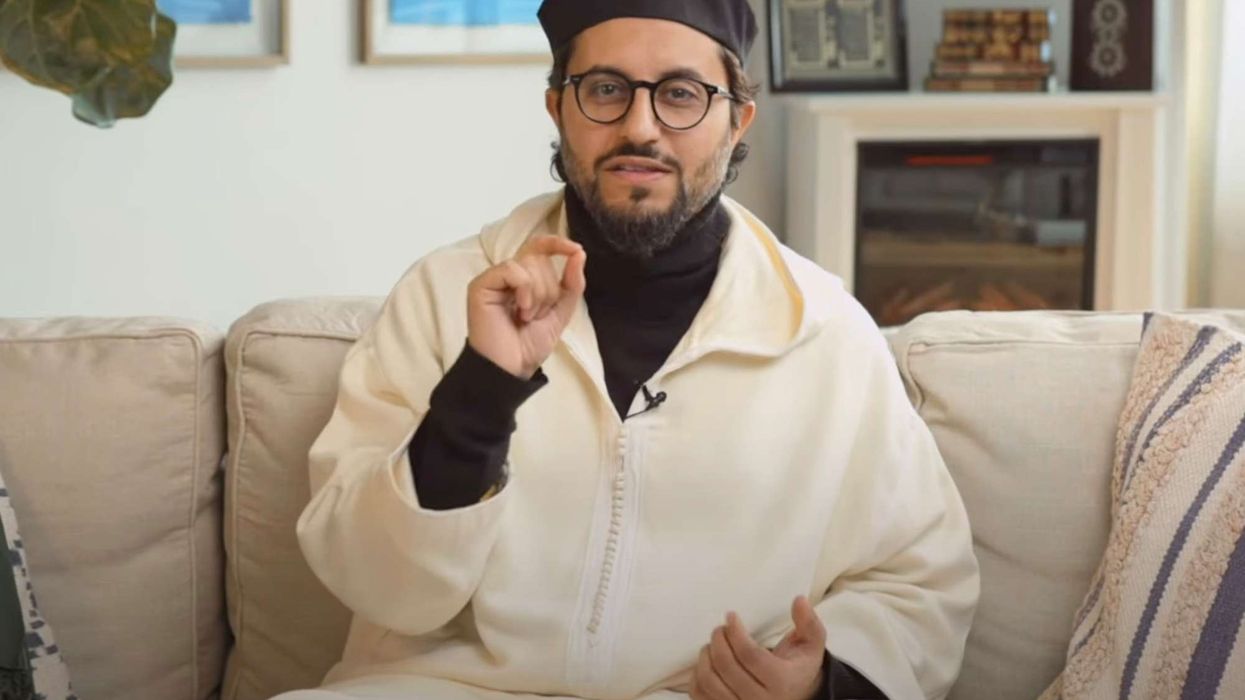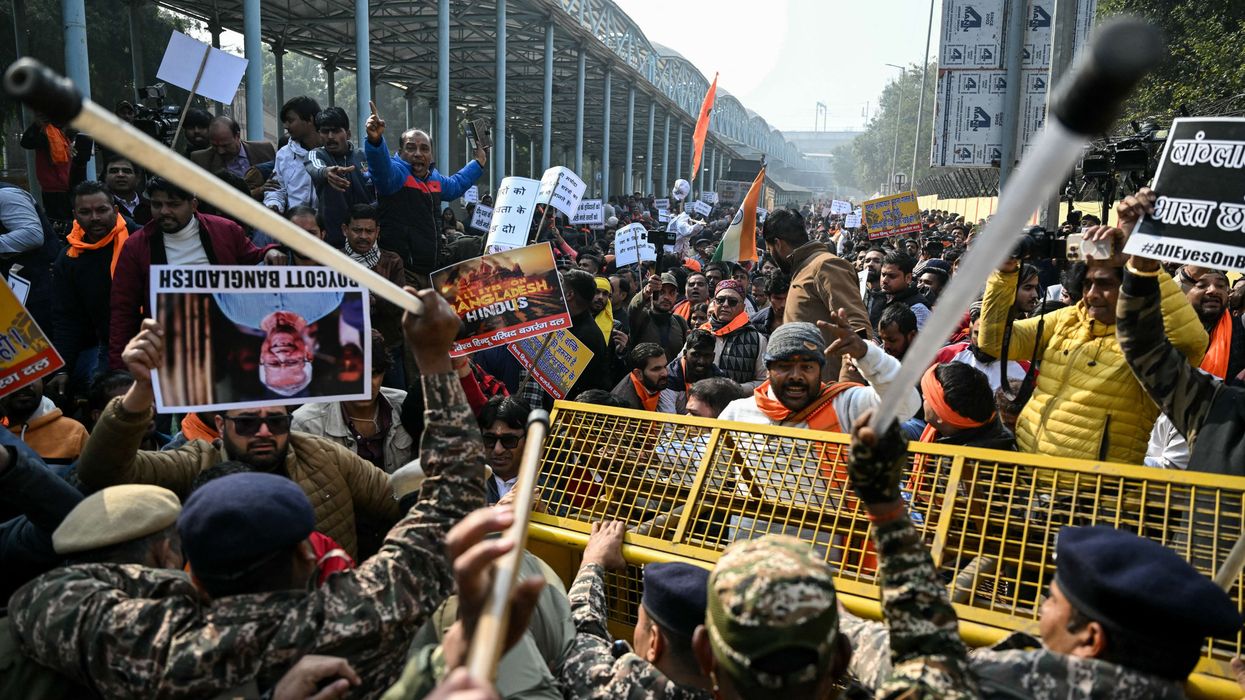HOW RAJKUMMAR RAO USED HIS VERSATILITY TO FIND ACTING SUCCESS
by ASJAD NAZIR
THERE is a very select group of actors in Indian cinema that producers can rely on to deliver any type of role. From small independent productions to big Bollywood blockbusters, Rajkummar Rao has used a chameleon like ability to become one of them. The versatile actor has shown off his impressive range as a performer in a diverse array of projects that have won universal acclaim. These include his debut Love Sex Aur Dokha, Kai Po Che!,Shahid, City Lights and Aligarh.
That ability to tackle different roles was perfectly illustrated in recent contrasting projects Bareilly Ki Barfi and Newton. With a whole host of projects including his first international ventures on the way, the in-demand star is looking to expand his horizons even further and test himself with more challenging roles. Eastern Eye caught up with the softly spoken star to talk about his successful journey, acting, future hopes, inspirations and more.
What was your first experience of performing for an audience?
I vividly remember it being an amazing experience. I was around six or seven-years-old and I had to sing a song in one of the school annual functions. (Smiles) I remember how I totally forgot after couple of lines and started singing random lyrics, but in the same tone and did that till the end. I think my knack of improvisation came from there only.
What made you want to be an actor?
I completely fell in love with movies when I was around 10-years-old. I remember watching two films every weekend back in those days with the whole family. Films were a fantasy land for me. I always wanted to be in that land and in my own dreamy world where actors were these extraordinary super humans and I wanted to be one of them. But of course, I became much more serious about it when I was around 16 and decided it was what I wanted to do for the rest of my life.
What was it like facing the camera for the first time?
It was a very surreal experience. I was from a theatre background and when I went to my film school to study acting, I remember I was a little loud. My first director told me to take it easy and be real and I learned my lesson. It was for one of the student’s short films.
How was the experience of acting in your first film, Love Sex Aur Dokha, which was such a huge success?
I feel very fortunate that I got my first break with a director like Dibakar Banerjee and with (producer) Ekta Kapoor in Love Sex aur Dhokha. It was the first digital film of our country. It was a very performance driven part and Dibakar gave me the freedom to perform and that gave me a lot of confidence, and I was very happy with the positive reviews.
Your journey as an actor since then has been remarkable. How do you look back on it?
I think the journey has been quite smooth minus a few bumps here and there. I feel blessed that I am getting to do the kind of work I want to do, otherwise it’s very easy to get typecast here. But it’s just a humble beginning and there is so much that I still have to cover.
You are a gifted actor, but which roles have challenged you the most?
Every role comes with its own challenges but Shahid, City Lights, Trapped and now Bose have been quite challenging for me personally, both mentally and physically. They were not easy parts to perform, but the credit goes to my directors, who were always so encouraging and pushing me to my limits.
You have received a lot of acclaim. When did you realise you were really good at acting?
(Laughs) I haven’t realised that yet. I still get very scared before starting a new film. I don’t think I can ever say I am a good actor, but yes I am curious enough to look for what’s required to become one.
You are in demand – what kind of roles are you drawn towards?
I don’t have a plan in place such that these are the parts I want to do in my career. I want to do everything. I want to invest all my life to look for parts that challenge and push me as an actor, no matter where they come from and in what language.
But what would be your dream role?
I don’t have a dream role, Asjad. Honestly my only dream was to become a working professional actor in films and I am living that dream everyday and very grateful for that.
What is the secret of a good performance – you clearly know?
To be a good listener, I guess. That is the secret of a good performance.
You just delivered another great performance in Bareilly Ki Barfi. What do you have coming up?
There is (director) Amit Masurkar’s Newton, which just released across India. After that I have an interesting array of projects including Omerta with filmmaker Hansal Mehta and web series Bose, which has been challenging and rewarding.
Which director would you love to work with?
There are loads of them who I would love to work with. So many extremely talented directors are working today. I want to work with every single one of them. Film making is a director’s medium. So the better the director, the better the performance and better the film will be.
Indian cinema is attempting more genres than ever, is this an exciting time for actors?
It is a very exciting time to be a working actor in films thanks to our audience and the new generation of filmmakers, who are experimenting with their art of telling different stories in different ways. Our audience also wants to see characters on screen instead of the same actor doing same thing again and again. Thanks to the internet our audience knows the kind of work happening outside of our country, so the comparison is always there, which also pushes us to work even harder.
What are your big passions away from work?
I enjoy travelling and reading very much. I also like to binge watch on Netflix and Amazon when I have time.
Tell us something not many people know about you.
People might think that I am this quiet, serious guy because of the kind of films I do, but I am not really like that. I am a national level gold medallist in Tae Kwon Do and I am a really spiritual guy.
Do high expectations ever put pressure on you and do you get nervous before a scene?
I don’t really let any kind of pressure affect me while performing a scene. I can’t work under pressure, especially acting. I need to be relaxed while acting or doing a scene. I love what I do and can’t fall in love under pressure. I don’t really think about what people expect of me and honestly I don’t know what they do expect of me.
What is the best advice you ever received?
The best advice would be, don’t think about what’s going to happen to the film once it’s done. That is something that is not in your control and films are for life not for weekends or one week.
What inspires you today?
Acting itself inspires me. It’s such a vast world and I don’t think that I can ever understand it completely.
If you could learn something new what would it be?
I really want to learn how to play a guitar and I am honestly trying to do that.
What is your favourite movie of all time?
There are so many great films, but my favourite is The Godfather. It’s one of the finest films ever made in all departments, not only acting. It’s a masterclass in acting for me.
Why do you love cinema?
Cinema has given me my identity and it’s this parallel universe for me where I can live these different lives.











